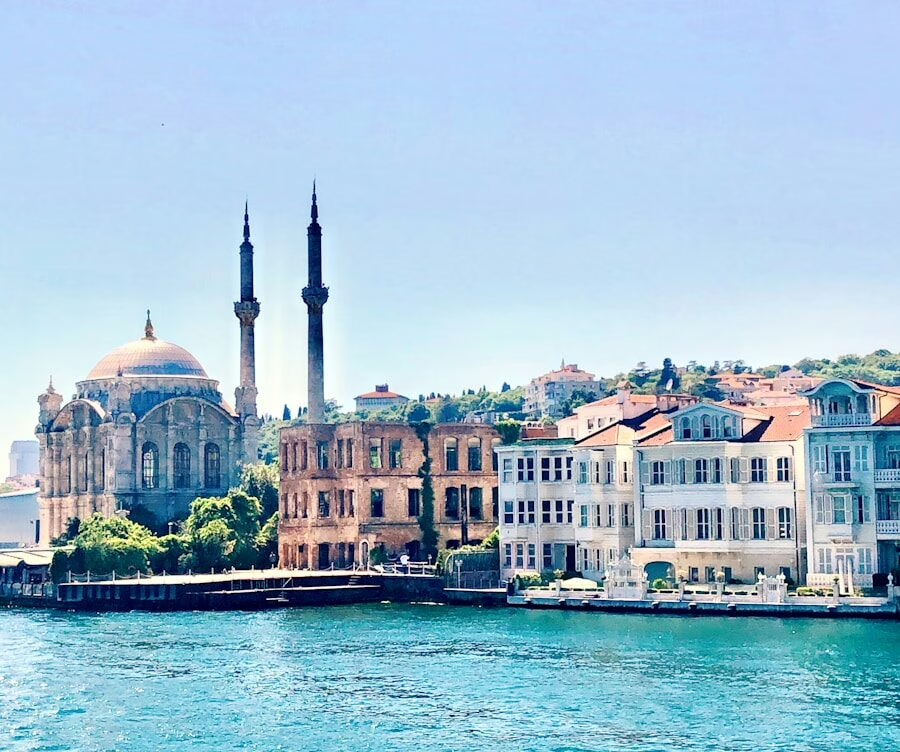Contents
Turkey, with its rich history, picturesque coastlines, dynamic cities and extremely affordable prices, is attracting more and more foreign property buyers. For Bulgarians looking for an affordable holiday property, investment or even a place to relocate, a property in Turkey can be a very attractive option. The process of buying from Bulgaria may seem complicated, but it is perfectly doable with the right information and support. This article will guide you through the basic steps and requirements for a foreigner buying property in our southern neighbour.
Why Turkey is attractive for buying property?
- Affordable: Compared to many European countries, real estate prices in Turkey are significantly lower, offering excellent value.
- Geographical proximity: for Bulgarians, Turkey is easily accessible by land and air, making it easy to view and manage properties.
- Capital Appreciation Potential: In many regions, especially in fast-growing cities and tourist areas, there is potential for property value growth.
- High Rental Income Potential: Tourism is a strong industry in Turkey, making short-term rental properties lucrative.
- Citizenship for investment: for investors who purchase a property worth more than a certain amount (usually more than USD 400,000), Turkey offers the opportunity to obtain Turkish citizenship.
- Rich culture and nature: Turkey offers a unique combination of history, culture, seaside resorts, mountains and cosmopolitan cities.
Legal framework for foreigners buying property in Turkey
According to Turkish law, foreign citizens are entitled to acquire real estate (land, apartments, villas) in Turkey. It is important to observe the following restrictions and requirements:
- Nationality: Citizens of countries that have reciprocity agreements with Turkey, or who are approved by the Turkish President, can buy property. Bulgaria is among these countries.
- Area: a foreigner may purchase up to 30 hectares (300,000 sq.m) of land in Turkey.
- Location: The property must not be located in military or security zones.
- Military approval: in order to transfer ownership, the Turkish Cadastre and Land Registry Directorate (Tapu ve Kadastro Genel Müdürlüğü – TKGM) requires an approval check from the relevant military authorities, which confirms that the property is not in a military zone. This process is now much faster than in the past.
How to buy property in Turkey: step by step
The process of buying a property in Turkey as a Bulgarian is relatively straightforward but requires attention to detail and professional help.
1. Obtaining a Turkish Tax Number (Vergi Numarası)
- Why it’s important: This is the first and most important step. Your Turkish tax number is mandatory for all financial transactions in Turkey, including opening a bank account and buying property.
- How to get it: you can get it easily from a local tax office (Vergi Dairesi) with a valid passport.
2. Opening a bank account in Turkey
- Why it is important: It is needed to make payments on the purchase of the property (often in Turkish lira or other currency), as well as to pay utilities and annual fees after the purchase.
- Requirements: usually a tax number, a valid passport and proof of address registration in Bulgaria are required.
3. Choosing a property and hiring professionals
- Real estate agent: work with a licensed and reputable real estate agent who has experience with foreign buyers and knows the market in your chosen area.
- Lawyer: It is highly advisable to hire an independent Turkish lawyer to review all the documents, carry out legal due diligence on the property and protect your interests.
- Due Diligence: the lawyer will check:
- Title deed (Tapu): will confirm that the seller is the legal owner and the property is free from encumbrances (mortgages, liens).
- Occupancy Permit (İskan Ruhsatı): a certificate of occupancy that is important, especially for new construction.
- Lack of debt: for utilities, condominium maintenance fees.
- Military Zone: Verification that the property does not fall within a military zone.
4. Signing the preliminary contract and deposit
- Once you select a property and your lawyer approves all the documents, you can sign a preliminary contract with the seller.
- A deposit (5-10% of the purchase price) is usually paid to guarantee the transaction.
5. Obtaining an expert evaluation (Ekspertiz Raporu)
- For properties being purchased by foreigners, an expert valuation issued by a Capital Markets Board (CMB ) licensed valuer is mandatory. This valuation ensures that the price quoted in the Tapu is in line with the market value.
- The fee is borne by the buyer.
6. Final Transfer of Ownership (Tapu Devri)
- This is the culmination of the process when ownership is officially transferred.
- The meeting is held at the Directorate of Cadastre and Land Registry(Tapu ve Kadastro Genel Müdürlüğü – TKGM).
- Required documents: passports, tax number, notarized power of attorney (if you use one), expert valuation, currency exchange document (Döviz Alım Belgesi – for the amount transferred in Turkish lira from abroad).
- Interpreter: It is mandatory to have an official sworn interpreter (yeminli tercüman) present if the buyer does not speak Turkish.
Costs and fees when buying a property in Turkey
In addition to the purchase price of the property, you should anticipate the following costs:
- Property Transfer Fee (Tapu Devir Harcı):
- Amount: 4% of the value of the property as stated in the expert appraisal. This amount is usually split equally between the buyer and seller (2% each), but can also be agreed to be borne entirely by one party.
- Cadastre Service Fee (Tapu Kadastro Harcı): a small fixed fee paid to the Cadastre Department.
- Solicitor’s fee: varies but is usually 1% of the purchase price + VAT.
- Estate agent commission: typically 2% of the purchase price + VAT payable by each party.
- Expert evaluation fee: about 1 500 – 3 000 Turkish Liras.
- Sworn translator fee: around 500 – 1 000 Turkish Liras.
- Cost of opening utility subscriptions: electricity, water, gas, internet. Deposits are required.
- Insurance: compulsory earthquake insurance (DASK) as well as recommended property insurance.
Important tips for Bulgarians:
- Professional help: never try to buy a property in Turkey without the help of a licensed agent and an independent lawyer.
- Check all documents: don’t sign anything until your lawyer has reviewed all the documents and you have fully understood them (with a licensed translator).
- Be realistic: Prices may be low, but budget for repairs (if necessary), furnishings and running costs.
- Find out the maintenance fees: for apartments in complexes there are monthly maintenance fees (Aidat) that cover common areas and included amenities.
Buying a property in Turkey as a Bulgarian is affordable and can be a profitable investment. Turkish legislation is favourable for foreigners buying property, but it is essential to follow the correct procedures and rely on qualified professionals. With careful planning and an understanding of all aspects of the process, your dream of owning your own home in Turkey can become a reality.
You might also like:
- Off-plan Property in Dubai: Pros and Risks for Investors
- Cap Rate: a quick comparative analysis of property investments
- The power of compound interest in property: How time works for you
This post is also available in: Български







